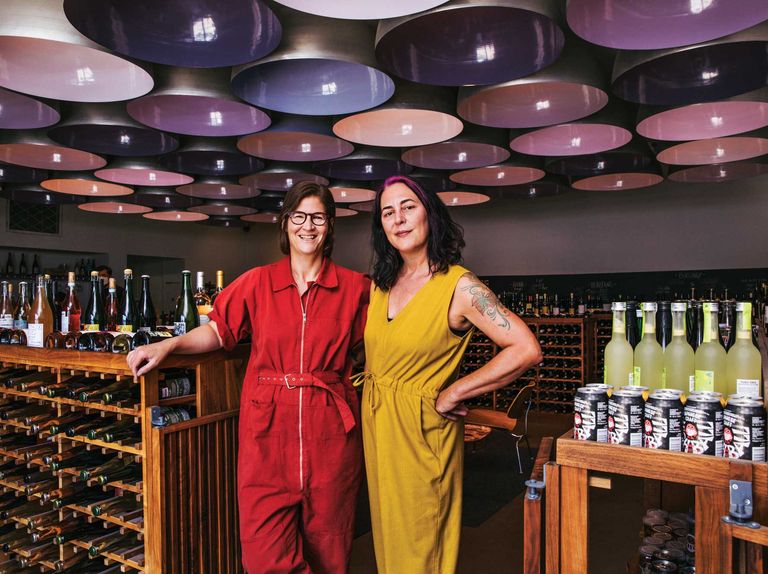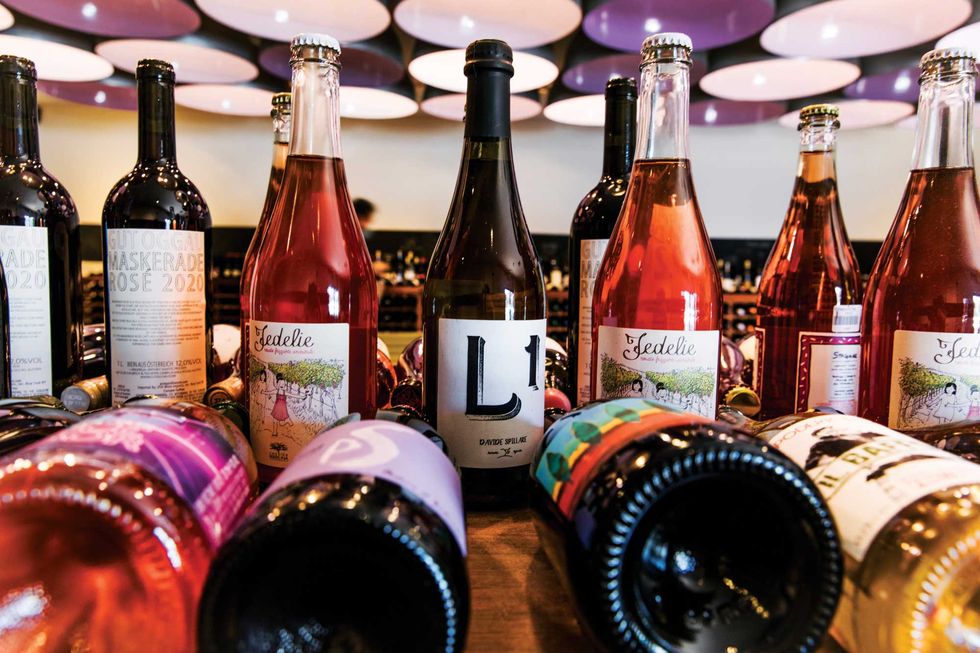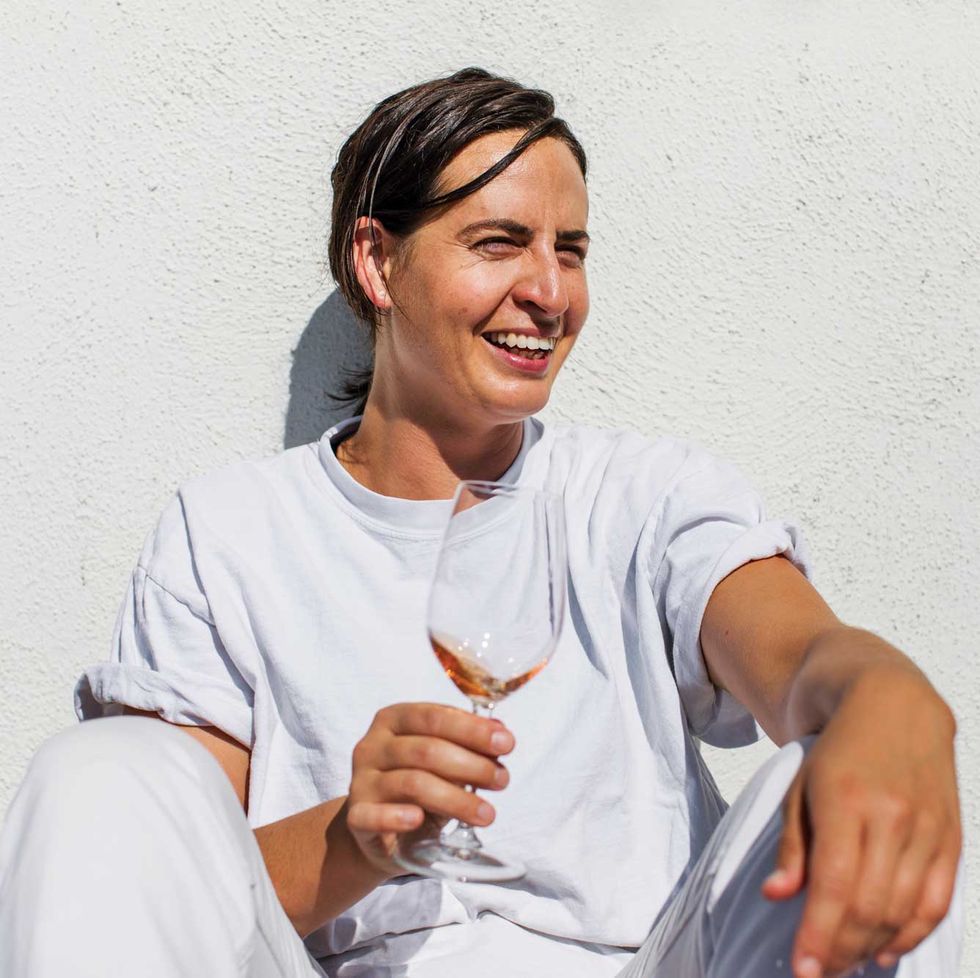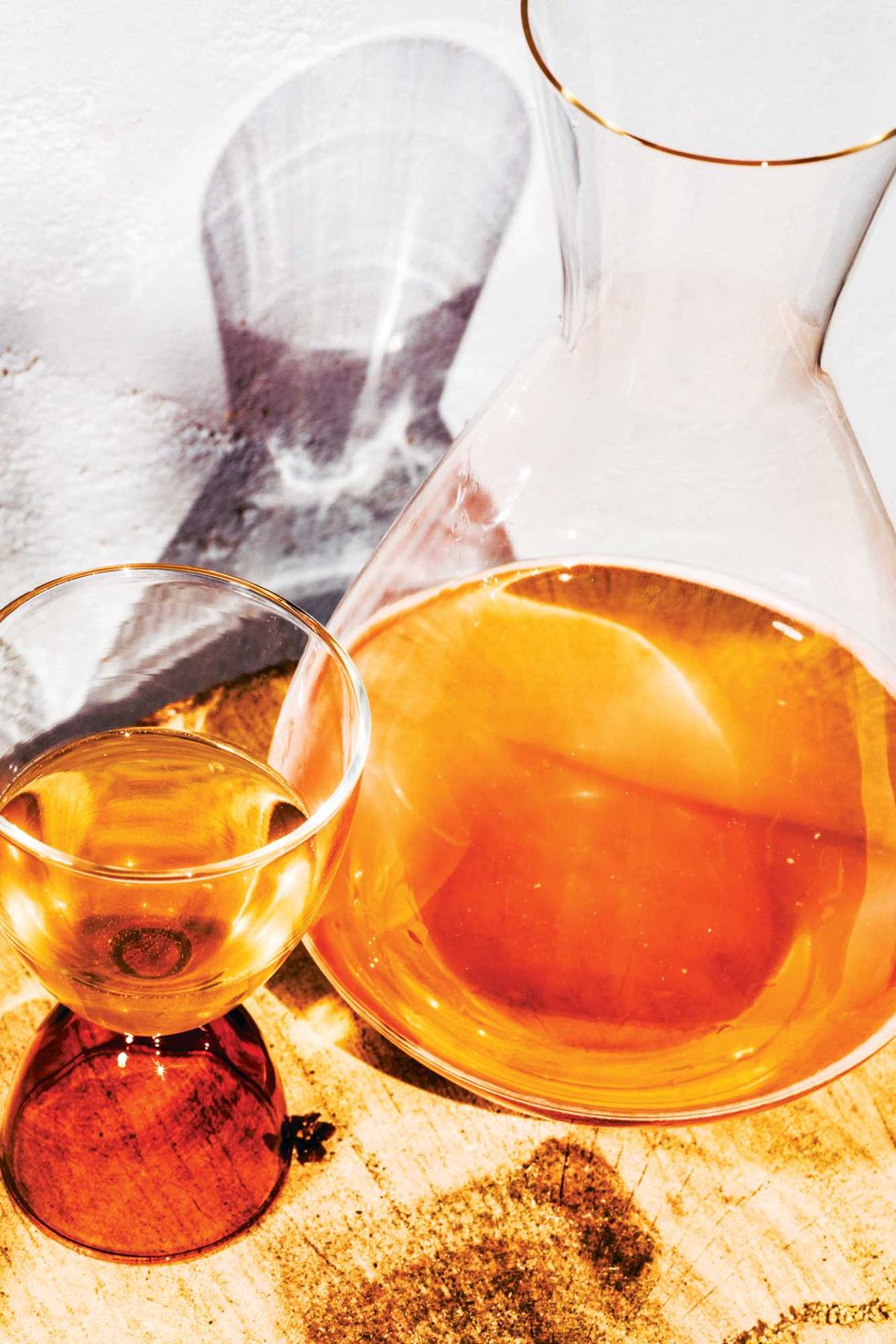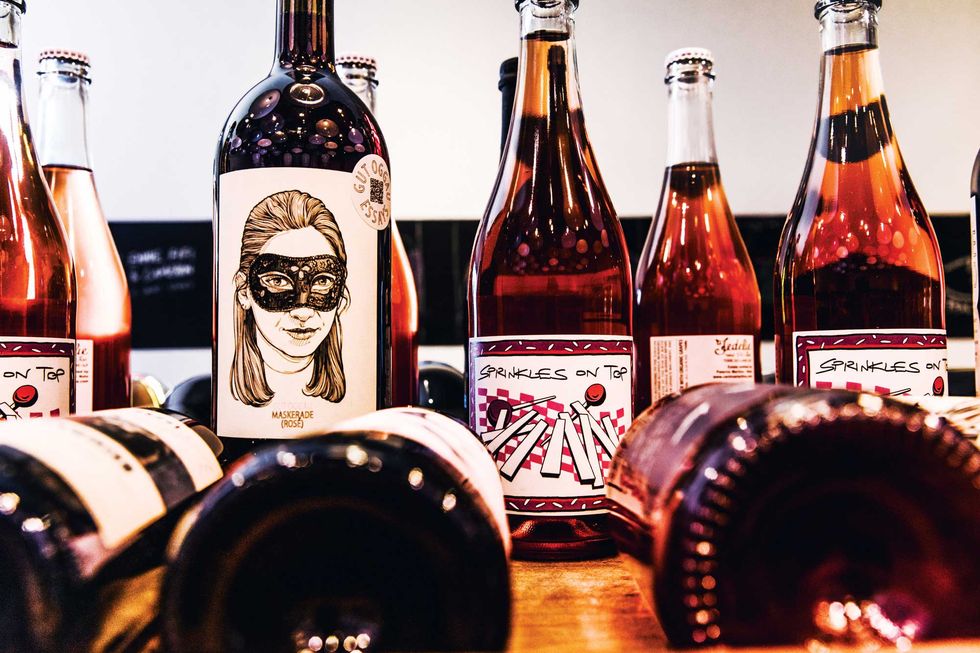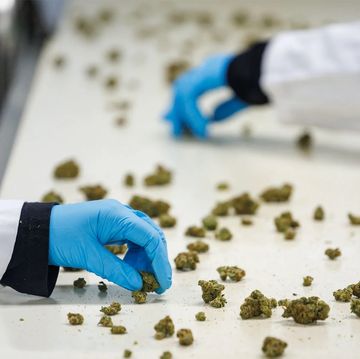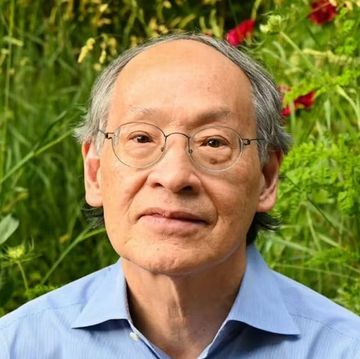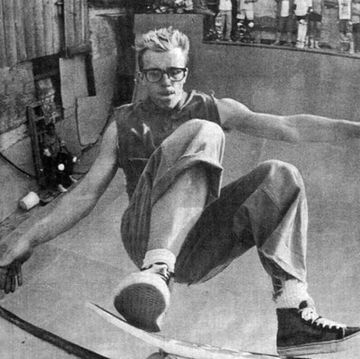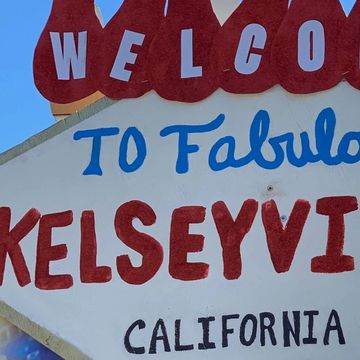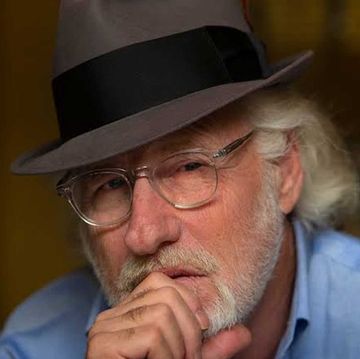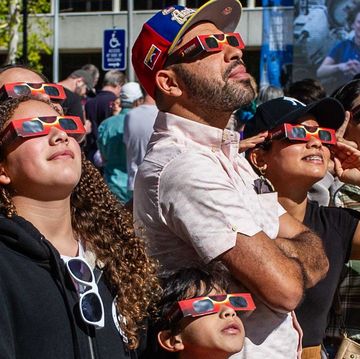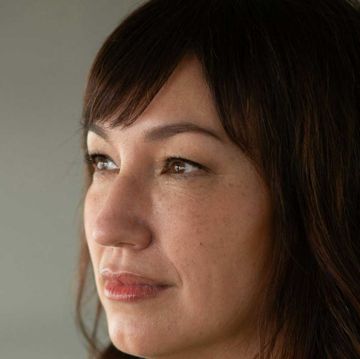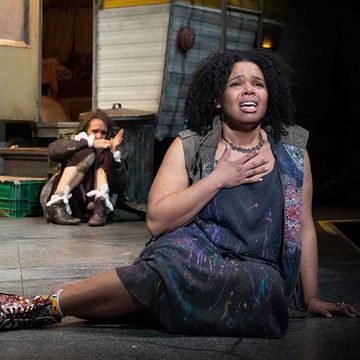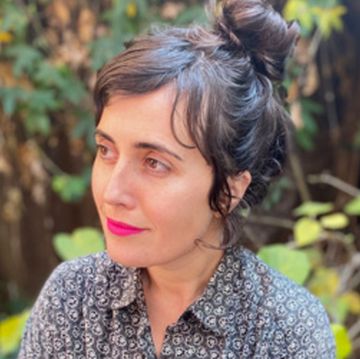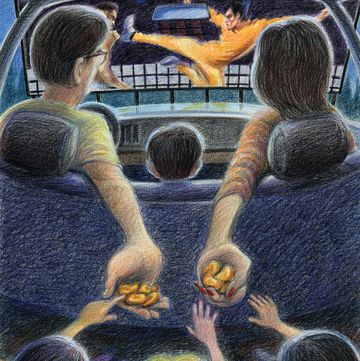Following the 2007–08 recession, Los Angeles Times food critic Jonathan Gold declared that 2009 had been a year of changing tastes. High-profile restaurants continued to open on the Westside, but much like what we’ve seen throughout the COVID-19 pandemic, the rest of L.A.’s dining scene was undergoing a major shift. “While nobody was paying attention, food quietly assumed the place in youth culture that used to be occupied by rock ’n’ roll,” Gold wrote, describing this newly formed food scene as “individual, fierce and intensely political, communal yet congenial to aesthetic extremes.” No one had their finger more firmly on the pulse of L.A. food than the late critic, but in the dozen years since, we’ve had yet to discuss how 2009 was also the year of changing tastes in wine.
In the mid-2000s, you went to one of two wine bars in Los Angeles: A.O.C. in Beverly Hills or Lou in Hollywood. Jill Bernheimer was drawn to the latter, which reminded her of the wine bars she’d visited in Paris, where one could get a humble bite of cheese and charcuterie, thoughtful home-cooked meals, and a list of lesser-known wines. The wines Bernheimer drank on her European travels left such an imprint that she abandoned her decade-long career as an independent film producer to pursue a wine merchant’s life. She started a blog and began selling wine to friends, family, and readers. The audience, she says, “grew unintentionally from there,” and in 2009, she opened Domaine LA in Hollywood—one of the city’s first natural wine shops.
Natural wines were a new phenomenon in L.A. According to New York–based wine writer Alice Feiring, the first natural wine bar opened in Paris in 1989, and after that, the wines made their way to New York. In the meantime, wine critic Robert Parker had inspired an era of high-alcohol, oak-driven Napa cabernets in exchange for 100-point scores. Feiring contrarily believed that the noblest thing a vigneron could do was make wine as naturally as possible. It was a return to a time before chemical fertilizers and pesticides were used in farming and wines were altered in the cellar through modern means; U.S. winemakers are currently able to include more than 70 additives without any disclosure on the bottle label.
This article appears in the Fall 2021 issue of Alta Journal.
SUBSCRIBE
The natural wine movement has existed for decades, and the industry still cannot agree upon a definition. First and foremost, the grapes must be farmed organically, but otherwise, there are gray areas. Natural wine is more of an umbrella term, or a spectrum, say, that spans a wide range of farming practices: organic, biodynamic, dry, regenerative, and sometimes a combination of them all. Common approaches include picking grapes at lower-sugar ripeness levels, when the fruit has more acidity, and refraining from fining or filtering, adding and removing nothing during the winemaking process. It’s wine without makeup, bottled with the least amount of sulfur needed to preserve it, until the moment you pull the cork, glug, and enjoy, preferably sooner rather than later. At their best, natural wines are profound and invigorating and elicit joy. The most devoted naturalists describe them as purity stopped in a bottle. Granted, choosing the path of least intervention has its risks; without sulfur, the resulting wines can vary from bottle to bottle, even, and are more prone to flaws.
Bernheimer remembers, in her first year of business, selling a case of wine to a prominent screenwriter, including a bottle of Denavolo, which she thought he would appreciate from an artistic standpoint. This particular winemaker, from Northern Italy, specializes in skin-contact wines, or wines made from white grapes fermented with their skins left on, as one does for red wines. They’re reminiscent of white wine, but the extended contact with grape skins—where the aromatics, flavor, and tannin reside—often brings out darker notes of citrus, more savoriness, and texture. (Skin-contact wines are also referred to as orange wines for their amber-colored hue.) The screenwriter had some unpleasant feedback. “I knew that bottle was an outlier because, at the time, a heavy macerated wine with a lot of volatile acidity from Emilia-Romagna was not something a lot of people had experienced in L.A.,” says Bernheimer. “Cut to 12 years later, and that’s an iconic natural wine that I would say is not considered too offbeat or unusual.”
Amy Atwood was one of Bernheimer’s early blog readers and customers. After she’d worked in restaurants and national wine sales for 15 years, she says, her palate began to change. “I wanted to drink more Beaujolais and Loire,” she says, “so from the beginning, I was looking for lower-alcohol, higher-acid, more naturally made wines.” This was around the time that Feiring published her first book, The Battle for Wine and Love: Or How I Saved the World from Parkerization (2008), which fanned Atwood’s interest even more.
Apart from Lou and Domaine LA, sources for natural wine were hard to come by. “I’d be hearing about something in New York or Paris, then I would try to find it here, and there was hardly any,” says Atwood. She contacted two of the country’s original natural wine importers—Savio Soares and Jenny Lefcourt, who are based in New York—to distribute their wines throughout California and launched Amy Atwood Selections. The first names in her portfolio included California winemakers like Jared and Tracey Brandt of Donkey & Goat in Berkeley and Hardy Wallace of Dirty & Rowdy in Napa, along with others who were ahead of the Parkerization curve.
There was no retail market waiting for Atwood when she started her import company, and there wasn’t much competition either. (In 2009, the other major player in L.A. was a wine representative named Robert Brownson, though he sold wines for an import company based in Berkeley.) It was an opportunity to break into a wine-market niche that was nearly nonexistent in California. Atwood hit the pavement with her bag of natural wines, went door-to-door to the state’s top restaurants, and introduced herself. Sommeliers had configured the wine world into an old boys’ club; they specialized in classic regions like Bordeaux, Burgundy, Champagne, and Napa. “I had put together this very radical book of wines that they did not know or understand,” says Atwood. They liked being specialists and steered clear of anything unfamiliar, including “this young woman who has these crazy wines.”
Bay Area restaurants that showed an interest early on, such as Chez Panisse in Berkeley, were, Atwood believes, more in tune with the changing trends in Europe. The restaurant Animal on Fairfax Avenue was one of Atwood’s first L.A. accounts. Helen Johannesen, who’d just been hired as Animal’s wine director, remembers Atwood well from those days, describing her as “an intense, outspoken Texan woman with a take-it-or-leave-it attitude” and also noting that Atwood was the first female wine sales representative she’d ever met.
“It was a little bit scary,” says Atwood, though her mindset was, Well, if it doesn’t work out, we’ll go back and sell conventional wines.
SECOND WAVE
If there was a map of L.A.’s natural wine scene, Domaine LA would be at its center. To work there has been a rite of passage for a slew of the city’s top natural wine professionals who have opened their own businesses. And most of them are women.
Take alumna Roni Ginach, for instance, who became a legend in L.A.’s natural wine scene when she converted Michael’s in Santa Monica—which opened the same year that Beaujolais icon Marcel Lapierre’s wines started the natural movement, in 1979—to a natural-focused wine program; Ginach now owns the L.A.-based natural wine import company Roni Selects. “Rather than expand my own business, I did want to support other people and whatever their endeavors might be,” says Bernheimer. “I benefited from having such bright, talented, motivated people to work with me at the shop.”
This culture of spreading information to one another empowered the next wave of women-owned wine businesses. Bernheimer hired Kathryn Coker part-time knowing that Coker wanted to learn more about retail in preparation for opening Esters—which the Los Angeles Times has called the best wine bar in Southern California—in Santa Monica in 2015. Coming from the traditional side of wine, Coker didn’t recognize most of the wines on Domaine LA’s shelves. She doesn’t fully subscribe to the natural wine movement, though her time at Domaine LA “certainly bled into what I’m doing now, which is a focus on farming,” she says.
The same year that Coker opened Esters, Johannesen partnered with Animal’s owners, Jon Shook and Vinny Dotolo, to launch Helen’s Wines—a petite retail shop that is located in the back of another of the restaurateurs’ concepts, Jon & Vinny’s. Passersby on Fairfax Avenue would completely miss Helen’s without its pink neon sign outside. In fact, when Johannesen first opened the wine shop, “Jon & Vinny’s took off,” she says, “and no one knew what Helen’s was.” After a slow first year of business, she found creative ways to reach her audience—decidedly women, who she acknowledges were “an underserved demographic who weren’t empowered in their wine buying.” She’s since opened another Helen’s in Brentwood, and the restaurant group she services—which includes two, soon to be three, Jon & Vinny’s—makes her one of the top-spending buyers of natural wine in California. In addition to restaurant and retail service, Helen’s offers a monthly wine club and, until COVID hit, hosted regular events and a podcast called Wine Face.
The following year, in 2016, when Erin Sylvester, moved to Los Angeles to start a distribution company in partnership with New York–based importer Zev Rovine Selections, her peers tried to convince her that Northern California was the better market for her hypernatural portfolio of wines. “In practice, I have not found that to be true,” says Sylvester. “Los Angeles is thirsty and drinks a ton of natural wine.” Once the Los Angeles market caught on, it quickly established a stronghold (having a population that’s millions larger than the Bay Area’s helps). In 2017, Raw Wine, the largest natural wine fair in the world, also created by a woman, announced it would expand its reach to California and held one of its events in Los Angeles.
If 2009 was the year of changing tastes in wine, then 2017 was the tipping point for increased female representation. In 2016, the United States had come close to electing its first female president. Survivors of sexual violence and abuse shared more openly about their experiences, and the #MeToo movement went viral. Female empowerment traveled across all intersections, including L.A.’s natural wine scene. That was the year restaurateur Coly Den Haan opened Silver Lake’s Vinovore, a retail shop entirely devoted to wines produced by female winemakers. After blogging about wine for five years, L.A.-based comedian and writer Marissa A. Ross became Bon Appétit’s wine editor and, the following year, a published author (Wine. All the Time: The Casual Guide to Confident Drinking). Suddenly, more women were working in L.A.’s wine sector than ever before. It was more likely that import companies were female owned, that it was a woman who determined what bottles you saw on the shelves at your local wine shop, that a female wine director curated the wine list for that restaurant you frequented, and that the sommelier pouring wine into your glass, too, was a woman.
THIRD WAVE
Sommelier Anthony Cailan had an impressive wine résumé at 29 years old, starting with a job at Domaine LA when he was 21. His older brother, chef Alvin Cailan of Eggslut, had hosted pop-ups for the wine shop’s Sunday tastings. That was Cailan’s entry point, and he worked his way through other top L.A. restaurants, including Animal, before opening a restaurant in Brooklyn, the Usual, with his brother. It quickly became an industry hangout and caught the attention of wine critics, like Feiring. “A candidate for any 30 under 30 list,” she wrote about Cailan in her review of the restaurant. The following year, in 2019, Cailan appeared in other stories: on the cover of Wine & Spirits’ October issue for its annual best-new-sommeliers feature and, a day before Raw Wine opened in Los Angeles, in an article in the New York Times with the headline “A Celebrity Sommelier Is Accused of Sexual Assault.”
The piece, which cited four wine professionals’ accounts against Cailan, marked the wine world’s first steps toward its own reckoning. Suddenly, those in positions of power were being held accountable, from board members of the Court of Master Sommeliers to Dominic Foppoli, the owner of Christopher Creek Winery—and now a former mayor of the Sonoma County town of Windsor. And the conversation is expanding to other issues: racism, human rights, labor practices. In July 2020, Puglia, Italy–based winemaker Valentina Passalacqua was shunned for her father’s exploitation of migrant workers; a portion of Passalacqua’s vineyards were planted on his land, and there were questions as to whether she’d known and stood by silently. And earlier this year, Krista Scruggs was under investigation for operating her Vermont winery, Zafa Wines, without proper licensing, which brought accounts of credit card fraud and sexual harassment to the surface. Both winemakers were distributed by Amy Atwood Selections in California.
Atwood no longer represents Passalacqua, who has since been picked up by a mainstream import and distribution company, but she continues to stand with Scruggs. “There’s a lot of hypocrisy involved,” says Atwood. “It does not mean that Valentina should not be held responsible for being culpable, but it means there’s a lot more that should be addressed.” Atwood argues that Scruggs, a queer Black woman, is additionally up against racism and homophobia. The natural wine world is only but “a microcosm of bigger societal problems that we need to address,” Atwood says. No part of the wine industry, not even the seemingly conscientious natural wine community, has been exempt from the larger world’s systems of oppression.
Now, it’s easy to forget that 12 years ago, L.A.’s entire natural scene consisted of only a few people, including Bernheimer and Atwood, who’d inspire an entire league of other woman-owned wine businesses. Amid the COVID pandemic and the country’s spike in alcohol consumption, women have kept opening natural wine shops in L.A. neighborhoods, from Good Luck Wine Shop in Pasadena to Wine & Eggs in Atwater Village, from Voodoo Vin in Virgil Village to Heaven’s Market, a wine and flower studio in Chinatown. The natural wine market is more competitive than ever, especially in the past three years, according to Bernheimer, who feels her role in the community is now on the periphery. She says, “I like this little world, and I’m happy that I’ve been able to be in it and see it,” much of which she’s done alongside Atwood. “I’ll still be doing it when it’s no longer cool.”
Los Angeles lost its beloved food critic just as natural wine assumed its place in the city; Gold passed away in July of 2018. That was six months before I moved here to pursue wine writing, but if we could meet now, I’d tell him that while no one was looking, natural wine had quietly assumed the place in youth culture that used to be occupied by food and rock ’n’ roll, thanks to women. They hired other women, placed them in high positions, and built support systems for one another. The traditional wine space was saturated, so they made the exodus to natural wine, where they had room of their own, and they flourished.•
Sydney Love is a wine writer based in Los Angeles. She has written for the San Francisco Chronicle, Wine & Spirits, the Wine Zine, and Pipette.
